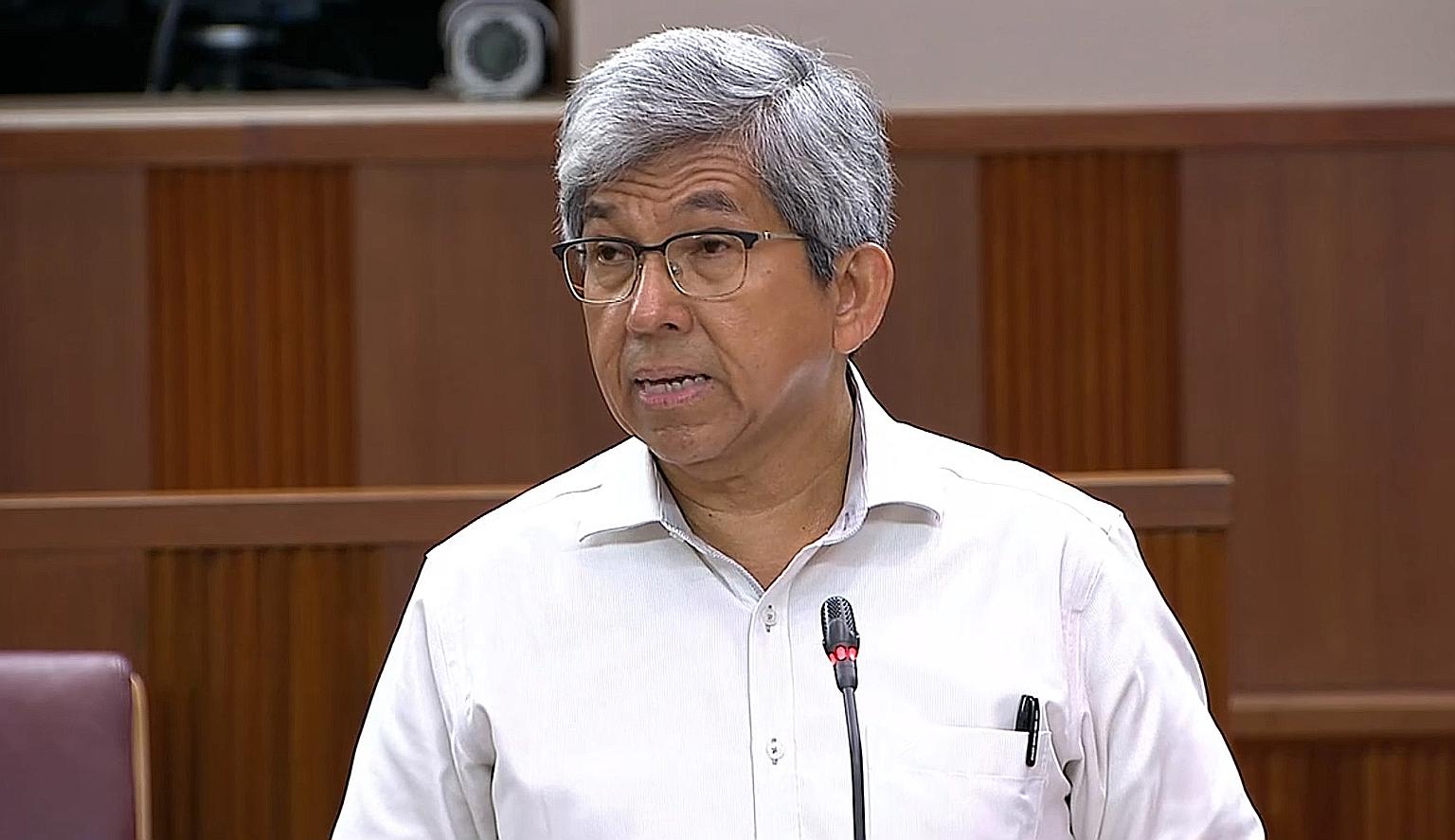Parliament: MPs highlight need to protect society's secular spaces
Religious leaders should not exert undue influence on public policy at expense of others
Sign up now: Get ST's newsletters delivered to your inbox

Professor Yaacob Ibrahim, an MP for Jalan Besar GRC.
Follow topic:
Several MPs yesterday called for Singapore to shore up its secular public space and ensure religious leaders do not exert undue influence on public policy.
They were speaking during the debate on proposed changes to the Maintenance of Religious Harmony Act (MRHA), which was passed in Parliament after 23 MPs had given their views.
One of them was Professor Yaacob Ibrahim (Jalan Besar GRC), who pointed out that the original 1989 White Paper on the Maintenance of Religious Harmony noted that it was "neither possible nor desirable" for people to separate their secular and religious selves.
"That is why it is absurd to ask me to decide whether I am first a Muslim or a Singaporean," said the former minister-in-charge of Muslim affairs.
"So, if we agree that it is not possible to compartmentalise ourselves, then we must be alert to the breaching of the barriers of secularism in our public life."
He added: "That is, we must continue to strengthen our common spaces and ensure that religious actors cannot impose their will on public policy to the detriment of other religious groups or the public good."
His call to keep the public space secular was echoed by Nominated MP Walter Theseira, who gave the example of how family structures have changed significantly since the major religions were founded.
"Women can, and do, live independent of men today.
"A divorcee or widow is no longer condemned to penury or forced into a second marriage by society," Dr Theseira said. "Single parents and blended step-families exist. There are Singaporeans of different sexual orientations."
He acknowledged that religious leaders have the right to prescribe principles of life for their followers, but pointed out that doing so in a destructive manner could have negative consequences for society.
In other countries, he said, religious leaders routinely demand changes in family policy so that religious principles are enforced "with the full weight of the state".
"This right, if applied indiscriminately in Singapore, would lead to the shrinking of the common space in Singapore," he added.
During the debate, other MPs called for greater clarity on who the Act will apply to and how it will be implemented.
For example, the Act holds religious leaders to a higher standard as they wield greater influence.
But it does not clearly define what a religious leader is, said Mr Christopher de Souza (Holland-Bukit Timah GRC).
While some religions may require leaders to undertake formal vows, others may not have such a requirement, he pointed out.
"Would that include part-time staff, those invited to recount their experience and give testimonies to a religious group, counsellors who help families overcome financial, family or marriage difficulties or the loss of loved ones, those who do or organise charitable work like providing rations for families in the neighbourhood?" he asked.
Ms Lee Bee Wah (Nee Soon GRC) also asked how the Government determines what behaviour is considered offensive enough to breach the law.
The end goal, she added, should be to determine why certain acts are deemed offensive and how to prevent them from recurring.
"After all, many offences happen as a result of a lack of empathy and ignorance, rather than pure malice," Ms Lee said.
"In previous cases, some people who insulted other races and religions were doxxed and had their livelihoods affected, with some even losing their jobs.
"If we can rehabilitate criminals, can we do the same for cases under MRHA?"
Prof Yaacob said that changes to the Act will not cover what is said privately and to small groups, and urged Singaporeans "to aim for a higher bar".
"The best restraint must come from all of us," he said.
"What we believe is the right thing to say in public must also be the right thing to say privately."
From the backbench
Protect reasonable speech made in public interest
Nominated MP Anthea Ong noted that new provisions of the law protect vulnerable groups, including atheists, from hate speech. She suggested providing protection for well-intentioned and reasonable speech made in the public interest. This guards against highly intolerant segments of society who deliberately take offence.
Help religious groups understand updated law
Mr Alex Yam (Marsiling-Yew Tee GRC) noted that when the Bill was first tabled, he saw online sentiments such as "Will we ban fasting too?" and "Aggressive atheism in disguise". He urged the Home Affairs Ministry to engage more publicly with religious groups and help them understand what the law means.
Set up help desk to provide guidance
Nominated MP Mohamed Irshad suggested that the Government set up a help desk or resource centre to help religious groups comply with new requirements under the law on leadership roles and foreign donations. Law Minister K. Shanmugam said the Government will work with these groups.

